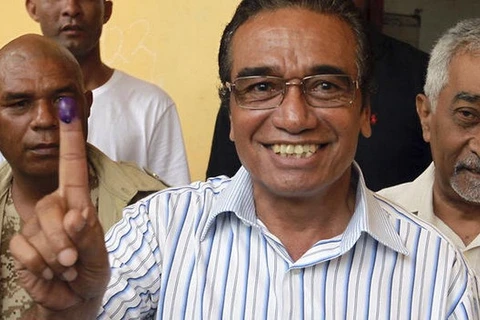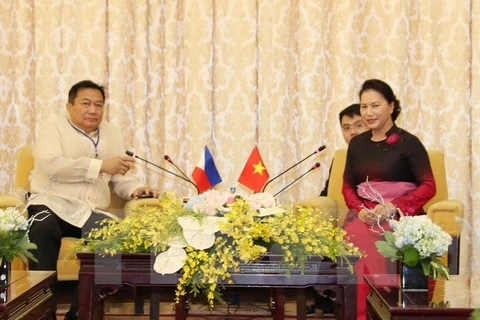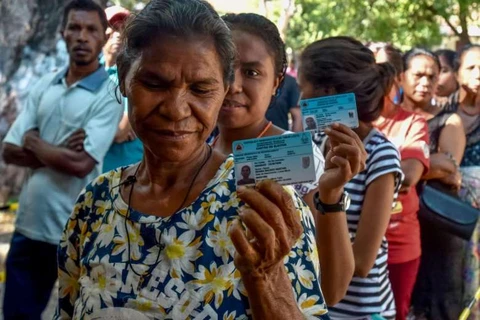Hanoi (VNA) – The Revolutionary Front for an Independent Timor Leste (FRETILIN) has won the Southeast Asian country’s parliamentary election but appears unlikely to claim the absolute majority required to govern outright, according to the vote result announced on July 24.
With all 567,964 valid votes, FRETILIN, which won 29.65 percent of the total votes, is expected to get 19-20 seats in the 65-seat parliament, short of the 33 seats needed to control the unicameral parliament outright.
FRETILIN, the main party in the country, can form a coalition with its chief rival, the National Congress for East Timorese Reconstruction party (CNRT), which gained 29.46 percent of the votes and get around the same number of seats as FRETILIN.
Meanwhile, the newly-established Popular Liberation Party, led by former President Taur Matan Ruak captured 10.58 percent of total votes and the Democratic Party obtained 9.79 percent. Both of them are likely to get 6 and 7 seats, respectively.
As many as 21 political parties contested in the election, in which they must win at least 33 seats to become a major party in the country’s legislative body.
With all 567,964 valid votes, FRETILIN, which won 29.65 percent of the total votes, is expected to get 19-20 seats in the 65-seat parliament, short of the 33 seats needed to control the unicameral parliament outright.
FRETILIN, the main party in the country, can form a coalition with its chief rival, the National Congress for East Timorese Reconstruction party (CNRT), which gained 29.46 percent of the votes and get around the same number of seats as FRETILIN.
Meanwhile, the newly-established Popular Liberation Party, led by former President Taur Matan Ruak captured 10.58 percent of total votes and the Democratic Party obtained 9.79 percent. Both of them are likely to get 6 and 7 seats, respectively.
As many as 21 political parties contested in the election, in which they must win at least 33 seats to become a major party in the country’s legislative body.
[Timor Leste: FRETILIN dominates parliamentary election]
After 15 years of independence, Timor Leste still faces a series of economic challenges, including high unemployment rate. The election took place in the context that young voters have become more pessimistic about the country’s economic prospects.
An opinion poll conducted by the Asia Foundation, a non-profit international development organisation, in December 2016 showed an overall downward trend in views about the country’s outlook, with increasing level of discontent among younger voters.
In 2014, about 73 percent of the interviewees said that Timor Leste was on the right track while only 58 percent share the same feeling in 2016.-VNA
After 15 years of independence, Timor Leste still faces a series of economic challenges, including high unemployment rate. The election took place in the context that young voters have become more pessimistic about the country’s economic prospects.
An opinion poll conducted by the Asia Foundation, a non-profit international development organisation, in December 2016 showed an overall downward trend in views about the country’s outlook, with increasing level of discontent among younger voters.
In 2014, about 73 percent of the interviewees said that Timor Leste was on the right track while only 58 percent share the same feeling in 2016.-VNA
VNA























